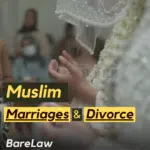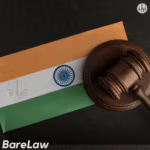
Table of Contents
Safeguarding Fundamental Rights: The Role of Judges in Constitutional Interpretation
Safeguarding Fundamental Rights: The Role of Judges in Constitutional Interpretation
To maintain individual freedoms, justice and the rule of law in any democratic society, the protection of basic rights is absolutely necessary. These rights are entrenched in the Constitution of India which acts as a shield against arbitrary state actions. The judges have a duty to interpret and enforce provisions in Indian constitution hence it is their responsibility to protect them.
The Significance of Fundamental Rights
Fundamental rights represent the foundation stones upon which a democratic society stands. They give citizens some absolute entitlements and safeguards like right to equality before law; freedom of speech etcetera up-to right to life and personal liberty. In addition not only do these rights keep off governmental interference with individuals but also ensure that all actions taken by government are carried out fairly.
Interpreting Fundamental Rights
Indian constitution is not static but rather dynamic because it was meant to be interpreted within changing social norms and realities. There are certain provisions of this legislation which need more interpretation than others especially those touching on basic human freedoms or liberties according to Indian case law development. This means therefore that judges must always consider what such provisions mean when applied in different contexts.
In order for one to understand fully about how best they can go ahead with interpreting such kind of laws there should be an understanding on several legal principles, precedents as well general objectives behind making that particular constitution itself so called holistic approach towards interpretation may sometimes require compromising individual welfare against collective good thus ensuring neither is unjustly subordinated.
Enforcing Fundamental Rights
Interpreting fundamental rights is only part of a judge’s role; enforcing these rights is equally crucial. Judges ensure that government actions, laws, and policies adhere to the principles laid down in the Constitution. This enforcement mechanism acts as a check on potential abuses of power and helps maintain the delicate balance between individual rights and the broader societal good.
When citizens believe their fundamental rights have been violated, they can approach the courts for redressal. Judges then review the case, apply relevant legal principles, and determine whether the rights of the individuals have been infringed upon. This process not only provides justice to the aggrieved parties but also sets legal precedents that guide future cases.
Judicial Review: A Constitutional Safeguard
Judicial review acts as a foundation of the Indian Constitution and an effective tool for protection of fundamental rights. It allows judges to verify legislative and executive actions against constitutional provisions. When a law or policy is found to be inconsistent with fundamental rights, the courts can declare it null and void thus preventing any branch of government from going beyond its powers.
Judges using judicial reviews ensure that laws and policies are in line with the spirit of the constitution. This is important because it helps to prevent abuse of power by governments and also keeps individual freedoms safe.
Balancing Rights and Societal Interests
The judges have a difficult task when it comes to protecting basic human rights. Quite often they find themselves in situations where one person’s right conflicts with those of other people or even with the larger interest of society or public welfare in general. In order to strike this balance correctly, one needs deep understanding about not only facts surrounding this matter but also legal principles involved as well as wider implications which may arise out from such decision taken by them.
Hence while making these judgements one has to consider whether there are compelling reasons for curtailing certain rights like endangerment prevention measures vis-à-vis overall greater good considerations among others.The complexity involved implies that interests have to be weighed against each other so that fair justice can prevail upon all concerned parties thereto.
Conclusion
The role played by judges in safeguarding basic human rights cannot be understated within any democratic setup. Their interpretation coupled with enforcement mechanisms attached thereof ensures that no individual will ever feel downtrodden due any action taken by state organs against him/her without following due process.It is through these landmark rulings made by various courts across India over years which create what could be referred as “constitutional culture” where people believe their liberties protected under supreme law will always upheld irrespective whoever may come into office at whatever level.
Realizing this fact makes us appreciate more our freedom fighters who fought tirelessly until they achieved their objective thereby laying foundation stones upon which justice system currently rests in many countries around world today.In addition through such pronouncements made from time immemorial up-to-date judges have been shaping legal landscape thus leaving indelible marks upon rights & freedoms enshrined within constitutions worldwide particularly those touching on diversity rights as well individualism so important for nations like India.



